Adaptive Channel Equalization with LMS Approach for Wireless Communication
Problem Definition
Problem Description:
The problem that this project aims to address is the issue of signal distortion and noise in wireless communication systems. Severe dispersive channels, such as wireless and mobile channels, often result in data transmission errors and signal degradation. This can lead to slow transmission speeds and unreliable communication. Traditional modulation techniques may not be sufficient to overcome these challenges, especially in dynamic communication environments.
Additionally, the presence of noise in the channel can further degrade the quality of the transmitted signal, leading to decreased reliability of the communication system.
There is a need for a more efficient and adaptive channel equalization technique that can mitigate the effects of signal distortion and noise, thereby improving the overall performance of the wireless network.
By employing the LMS approach for channel equalization, this project aims to address these issues by optimizing the filter coefficients to generate the least mean squares of the error signal. This adaptive equalization technique will help in equalizing the peaks of the signal to a threshold value, removing excess signal from the channel and increasing the speed of data transmission. Additionally, the reliability of the communication system will be enhanced by reducing the noise interference in the signal.
Overall, the problem of signal distortion, noise interference, and unreliable communication in wireless networks can be effectively addressed through the implementation of multi-level modulation with adaptive channel equalization using the LMS approach.
Proposed Work
This M-tech level project titled "Multi level modulation with adaptive channel equalization with LMS approach" focuses on utilizing the LMS approach for channel equalization in wireless communication. Implemented using MATLAB software, this project falls under the category of communication-based projects. With the increasing reliance on wireless technologies in various sectors, the need for efficient data transmission over dispersive channels has become crucial. By employing the LMS algorithm for channel equalization, this project aims to enhance the speed and reliability of wireless networks. The adaptive equalization technique implemented in this project removes noise from the signal and optimizes the transmission speed by equalizing the signal peaks to a threshold value.
By improving efficiency and reducing signal size, the project is expected to generate desirable outcomes in wireless communication networks. Overall, the project aligns with the latest trends in networking and wireless research, making it a significant contribution to the field of communication technology.
Application Area for Industry
The proposed project of "Multi level modulation with adaptive channel equalization with LMS approach" can be applied in various industrial sectors, such as telecommunications, manufacturing, transportation, and healthcare. In the telecommunications sector, where wireless communication is integral, the project's solutions can help overcome signal distortion and noise interference issues, leading to faster and more reliable data transmission. In manufacturing, the implementation of the adaptive equalization technique can improve communication between automated systems and reduce errors caused by signal degradation. In the transportation sector, enhanced wireless communication can improve connectivity between vehicles and infrastructure, leading to safer and more efficient transportation systems. Additionally, in the healthcare sector, reliable wireless communication can enable the transfer of vital patient data in real-time, improving patient outcomes and healthcare delivery.
The project's proposed solutions, such as utilizing the LMS approach for channel equalization and implementing multi-level modulation, address specific challenges faced by industries in ensuring efficient and reliable wireless communication. By optimizing filter coefficients and equalizing signal peaks, the project helps mitigate signal distortion and noise interference, ultimately enhancing the speed and reliability of communication networks. The benefits of implementing these solutions include improved data transmission speeds, reduced errors, increased network reliability, and enhanced efficiency in various industrial domains. Overall, the project's focus on communication technology aligns with the latest trends in networking and wireless research, making it a valuable contribution to addressing the communication challenges faced by different industrial sectors.
Application Area for Academics
This proposed project on multi-level modulation with adaptive channel equalization using the LMS approach can be a valuable resource for MTech and PhD students conducting research in the field of wireless communication systems. The project addresses the critical issue of signal distortion and noise interference in wireless networks, which are common challenges faced by researchers and practitioners in this domain. By implementing the LMS algorithm for channel equalization, students can explore innovative methods to improve the speed and reliability of data transmission over dispersive channels.
MTech and PhD students can use the code and literature of this project as a basis for their research, such as developing simulations to analyze the performance of different modulation techniques, evaluating the impact of noise on signal quality, and studying the effectiveness of adaptive equalization in enhancing communication systems. The project's focus on multi-level modulation and adaptive equalization aligns with current trends in networking research, providing students with a practical and relevant framework for investigating advanced communication technologies.
Moreover, the project's application of MATLAB software allows students to engage in data analysis, simulations, and performance evaluations, which are essential components of dissertation, thesis, and research papers in the networking and wireless communication domain. By exploring the potential applications of this project in their research, MTech students and PhD scholars can contribute to the development of innovative solutions for improving wireless communication systems.
In conclusion, this project offers a valuable opportunity for MTech and PhD students to delve into the complexities of wireless communication systems, explore cutting-edge research methods, and contribute to the advancement of the field. By leveraging the code and literature provided in this project, students can pursue impactful research endeavors that address the critical challenges of signal distortion, noise interference, and unreliable communication in wireless networks. In the future, the scope of this project could be expanded to include real-world implementation and testing of the proposed techniques in practical communication scenarios, offering further opportunities for experimentation and validation of research findings.
Keywords
Wireless communication, Signal distortion, Noise interference, Channel equalization, LMS approach, Data transmission, Adaptive equalization technique, Multi-level modulation, MATLAB software, Communication-based projects, Dispersion channels, Reliability, Speed optimization, Noise removal, Signal peaks, Efficiency improvement, Networking trends, Wireless research, Communication technology.
| Shipping Cost |
|
No reviews found!






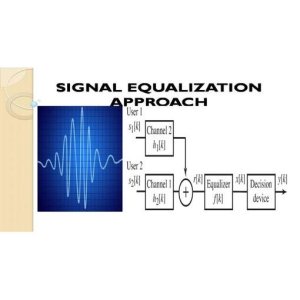
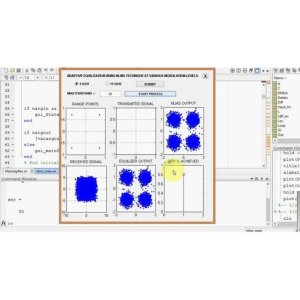

















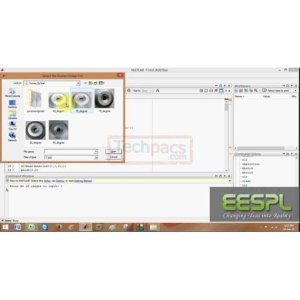
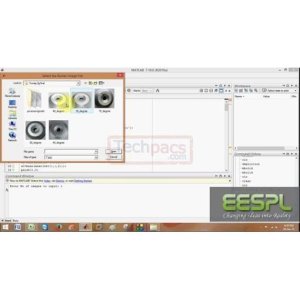
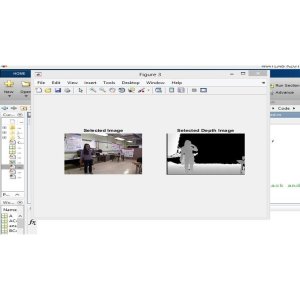
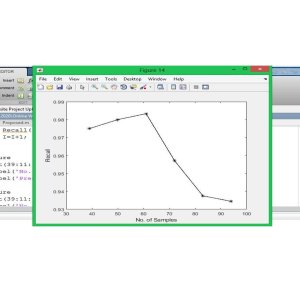































No comments found for this product. Be the first to comment!